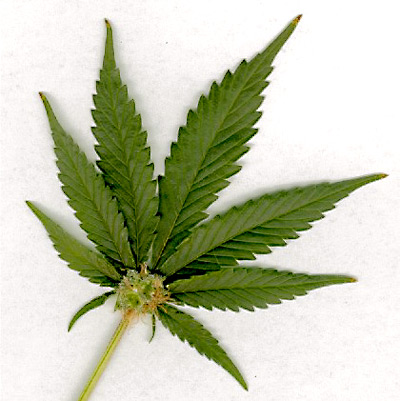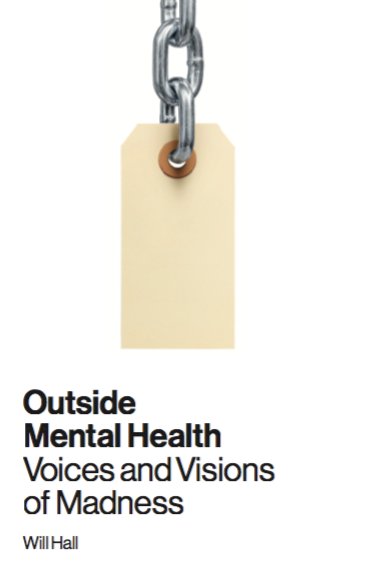The Substance of Substance Use: Talking About Marijuana, Alcohol, and Other Drugs
 When I was locked in a psychiatric hospital, I wasn’t able to have much of a conversation with my parents about what was going on. Phone calls were tense and filled with silence, and as I stood at the ward payphone I was so confused and frozen in fear that each call just confirmed to my parents how lost I was. Each day as a patient centered around the various prescriptions I was on, and, like so many people suffering in a psychosis, helping me became a wait to “find the right combination of medications.”
When I was locked in a psychiatric hospital, I wasn’t able to have much of a conversation with my parents about what was going on. Phone calls were tense and filled with silence, and as I stood at the ward payphone I was so confused and frozen in fear that each call just confirmed to my parents how lost I was. Each day as a patient centered around the various prescriptions I was on, and, like so many people suffering in a psychosis, helping me became a wait to “find the right combination of medications.”
Before spiraling into crisis I had, like many young people in their 20s, been taking any number of recreational drugs. Going to school in California and living in San Francisco virtually everything that could get you high was readily available and widely consumed. My friends and I were part of a youth culture where substance use was considered just another way to have a good time, like going to the movies or listening to music. So faced with a son who now was on the phone calling from a mental hospital, at one point my father said, Well, he must have just taken too many drugs. It was an explanation for my crisis.
It also hurt me, to hear him say that, and that one sentence, blaming me for my problems. damaged our relationship tremendously.
Substances exert a huge force over our imaginations. In many ways they are like magic – we know who we are, we are familiar with how we think, and the world seems a certain way to us, and then we can just drink a liquid or smoke some leaves or swallow a pill and everything dramatically and mysteriously changes. New emotions appear, old ones disappear, patterns of thinking warp and transform, our body wobbles into a new shape and the world becomes electrified or soggy, softer or more vibrant. It shouldn’t be surprising then to realize that as a society we tend to believe that substances — and the psychiatric medications that share this same ability to alter consciousness –have the power to save us from a crisis or to put us in that crisis to begin with. We look for a cause to our problems in substances, and we look for a solution to our problems in substances. I haven’t met anyone who, faced with some kind of stress, didn’t at some point reach for something, even if it is just a cup of coffee or a sweet treat.
But substances are also always situations, and situations often have no simple, single cause. For example, people I work with frequently ask about marijuana and psychosis, looking to answers. Did marijuana cause the crisis I am facing or that my family member is in? Is that the reason this happened? The research linking marijuana to psychosis seems to give a clear answer: for some people psychosis can be precipitated by using pot. But at the same time, marijuana, like alcohol, is widely used without leading to psychosis or other problems, and many states now are moving towards legalization of pot, considering, rightly, that pot is, overall, much less dangerous than tobacco or alcohol, which are already legal. So does marijuana cause psychosis or not? There is no way of knowing whether one person will respond to marijuana with a psychotic crisis, or will just end up going to sleep or acting silly or having a ravenous appetite. In general I do caution that marijuana can make things worse or be a big factor in psychosis, but I have also seen that not be true. The research offers no clue as to what marijuana might mean for a specific individual. To understand the role marijuana might play in psychosis, and to make decisions about substance use in general, you have to understand not the general “drug effects” or pharmacology research, but the overall situation a person is in.
This is very key to understanding recreational substance use as well as psychiatric drug use, and very difficult for a “sciency” culture to accept: There is no chemical explanation. There is only a life situation explanation.
Yes, sometimes changes in substances, such as stopping recreational drugs, or starting psychiatric drugs, can be the apparent key recovery. I’m pro-choice about substances just as I am pro-choice around psychiatric medications. I myself don’t take recreational drugs, and my friends and people I meet quickly realize I won’t be joining them for a beer, glass of wine, or hit of weed. I also don’t take meds. I believe that not taking mind altering chemicals of the recreational or psychiatric variety helps me enormously to avoid the altered states that landed me in the hospital. But I don’t believe it is the chemistry of the drug that explains this, but my choice itself and the life I live today as part of that choice. I didn’t stop smoking pot because I agreed with my father that drugs were to blame. I stopped smoking pot because of a personal discovery process of learning, exploration, and growth. For me, recreational drug use in my early life wasn’t just some harmful mistake, but a very important and valid part of me that I now honor and welcome – the part that wants to escape or explore, the part that wants freedom from the ordinary. Today I’ve found ways other than substances to meet my need to get high, escape, or numb myself out. Dancing, running, music, yoga, meditation, games, improvisation, being in nature, playing with a three year old — all of these get me high.
Choosing to not take substances is very different than being told you can’t take substances by a parent or authority figure. And the sanctuary of following someone’s advice can be very different than the wilderness of figuring things out on your own. Taking a substance for its consciousness effects can be totally unlike a professional healer prescribing it as a treatment for a disease. Not getting high on marijuana or alcohol is very different when you are high on something else. No trip at all is very different than choosing what kind of trip you will take. Avoiding the risks of substances is different when you are terrified of risk itself, instead of choosing between taking different kinds of risks. Just saying No is not the same when you have something to say Yes to.
I have seen individuals make advances in their recovery and healing when they found ways to stop using substances — but the reason is often the way they stop, the process and the meaning. Taking charge, making decisions, getting support while feeling respected, having your own worldview and your own spiritual perspective and identity different from your parents – substances can become a symbol of selfhood and independence itself. I have seen individuals make positive advance in their recovery without ending substances – or even starting substances or changing substances as a way of moving forward (there are growing numbers of people for example who use cannabis to help them come off psychiatric drugs – completely confounding the belief that cannabis causes psychosis and must be avoided). Sometimes beginning an addiction or continuing a substance can even be part of a personal strategy of compromise and negotiation to get you through the next step in their life. “Self-destructive” and “addiction” aren’t always what they seem. The power to expose yourself to harm and take risks, and the power to avoid harm and avoid risks, are, at essence, the power we have as humans to live our lives in our own bodies, not someone else’s. Children learn to choose what foods to eat as an early and fundamental expression of individuality and agency. What we put in our mouths, our veins, or our noses is a way of saying This is who I am.
I see people and families make progress (in their “recovery” or whatever language you want to use) when the decision about a recreational drug, or the decision about a psychiatric drug, is put in its proper place: a decision that is part of a larger life situation. Drugs always have a web of relationships and a whole social context surrounding them. Pills have meaning, getting high or drunk has meaning. This larger discussion is hard to have when the focus instead is on whether a drug causes this or cures that, whether to say Yes or No and thats the end of the conversation.
Can there be discussion about the risks and possible benefits of getting high? What about mom and dad, what kinds of substances did they use when they were young? Haven’t people lived perfectly fulfilling lives with a history of substance use in the past, or regular substance use in the present? Don’t some people do well on psychiatric drugs? Don’t other people sometimes get pulled down into terrible, hellish traps by the same substances? What hopes and dreams, fears and pains, are involved when we get high? What are we escaping? What harm do we notice now in ourselves and others, and what long terms harms should we be aware of? If we feel out of control with substances, could they be serving some need we haven’t yet faced squarely? If we like the high but fear the risk, what harm reduction trade offs can we make? Do I want this drug I am taking, recreational or psychiatric, to be part of who I am? Can I accept that this drug is part of the life of someone I love? Is a substance just a way of saying you don’t trust life to give you what you need, or is a substance the very pathway you need to get what you want from life?
On the phone with my parents from Langley Porter Psychiatric Institute, with my past recreational drug use and the regime of psychiatric medications I was trying every day, I wish there had been more questions and fewer answers. I didn’t need to just say no, or just say yes, to anything. I didn’t need to seek salvation through the right medication combination or fear damnation through the wrong recreational drug choices. I needed to be met and listened to for who I am, substances and all.





























 Creative Commons 2.5 copyright
Creative Commons 2.5 copyright
“Choosing to not take substances is very different than being told you can’t take substances by a parent or authority figure. And the sanctuary of following someone’s advice can be very different than the wilderness of figuring things out on your own.”
AND
“Taking charge, making decisions, getting support while feeling respected, having your own worldview and your own spiritual perspective and identity different from your parents – substances can become a symbol of selfhood and independence itself. The power to expose yourself to harm and take risks, and the power to avoid harm and avoid risks are, is at essence the power we have as humans to live our lives in our own bodies, not someone else’s.”
These quotes above are theories I believed…that we are all responsible before God for ourselves…but when it came down to our daughter becoming psychotic, all my theories went out the window, as we went into a complete state of panic, and basically took control of our daughter’s life. (Silly us, but we didn’t know better!) Now, three years later, and many courses and readings and family-support (recovery oriented) later, we are once again back on track of allowing ALL of our young adult kids the freedom to be who they are, when they want to be, why, where, how and why…period. The “pull” to grab the reins from our daughter is strong, but we continue the ‘letting go’ process, and it is working! She is happy, we our happy, our other kids are happy. Our son just told me recently: “My relationship to my sister is restored” and I have to think how much of that is because we as parents stopped trying to get everyone to rally around our daughter, and instead just let her be (as you are suggesting here.) I cried as I read your wonderful article here. Keep up the awesome work!
And lastly, I like this quote for your article: “I needed to be met and listened to for who I am, substances and all.” Just the like one of my favourite old hymns: “Just as I am.”